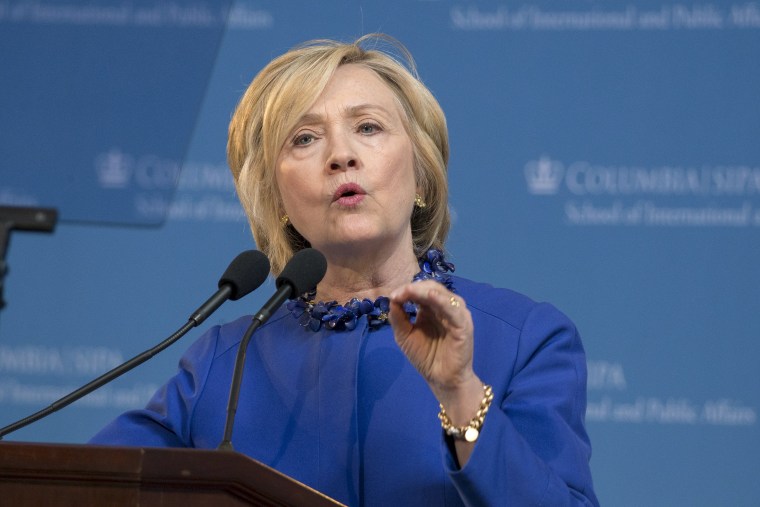Clinton began by addressing the violence in the streets of Baltimore this week following the funeral of Freddie Gray, a 25-year-old black man who died from injuries sustained while in police custody. The "violence has to stop," she said, but Clinton also acknowledged that it came in response to legitimate grievances. Ticking off the names of African Americans who have been killed by police in the past year, Clinton said the "patterns have become unmistakable and undeniable." And citing statistics illuminating the disproportionate policing burden borne by black men, she said something is "profoundly wrong" with our criminal justice system. "Everyone in every community benefits when there is respect for the law and when everyone in every community is respected by the law," she continued.
"First, we need smart strategies to fight crime that help restore trust between law enforcement and our communities, especially communities of color... We can start by making sure that federal funds for state and local law enforcement are used to bolster best practices, rather than to buy weapons of war that have no place on our streets. "President Obama's task force on policing gives us a good place to start. Its recommendations offer a roadmap for reform, from training to technology, guided by more and better data. "We should make sure every police department in the country has body cameras to record interactions between officers on patrol and suspects. That will improve transparency and accountability, it will help protect good people on both sides of the lens. For every tragedy caught on tape, there surely have been many more that remained invisible. Not every problem can be or will be prevented with cameras, but this is a commonsense step we should take. "The President has provided the idea of matching funds to state and local governments investing in body cameras. We should go even further and make this the norm everywhere. "And we should listen to law enforcement leaders who are calling for a renewed focus on working with communities to prevent crime, rather than measuring success just by the number of arrests or convictions."
In 1994, Bill Clinton's crime bill prescribed putting 100,000 more police on American streets, authorized billions of dollars for prison construction, forced states to impose harsher sentences on violent offenders to be eligible for prison-construction grants, and deprived federal inmates of access to college courses. [...] Twenty years ago, harsh sentences were political gold for a Democratic president seeking to show his toughness in a re-election campaign. Now, Republican presidential candidates, including Ted Cruz of Texas and Rand Paul of Kentucky, are calling for the repeal of mandatory minimum sentences. And Hillary Clinton, the front-runner for the Democratic nomination, knows ending mass incarceration is high on the priority list for many in her own party and outside it.
